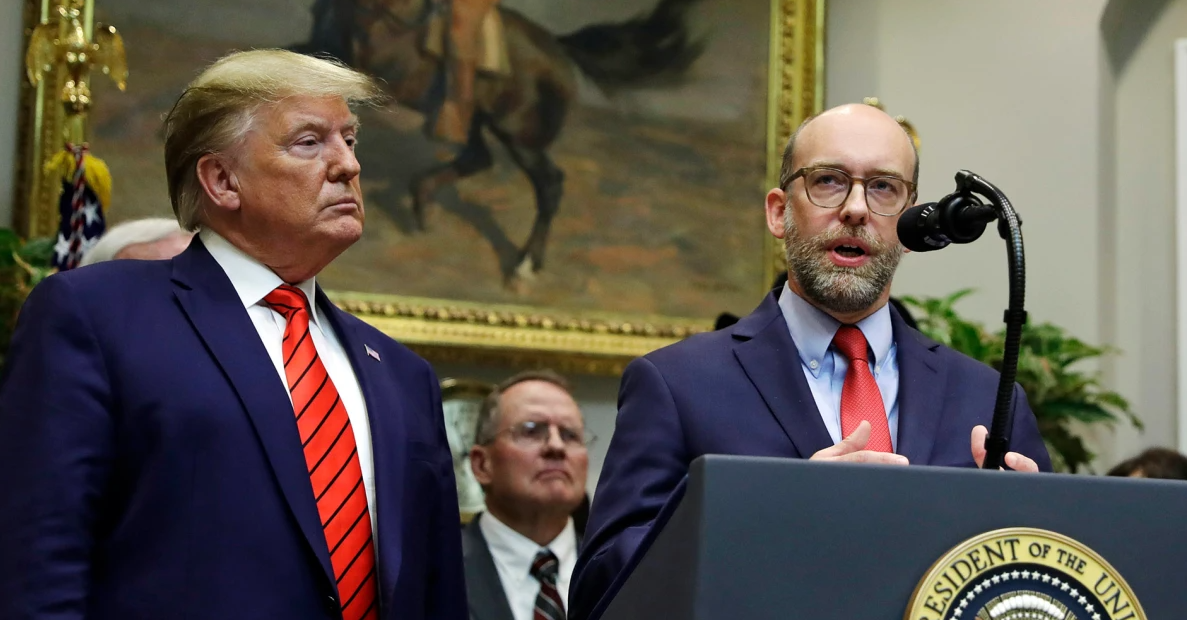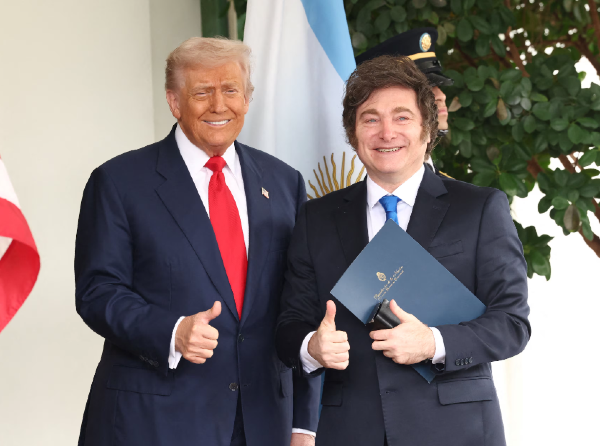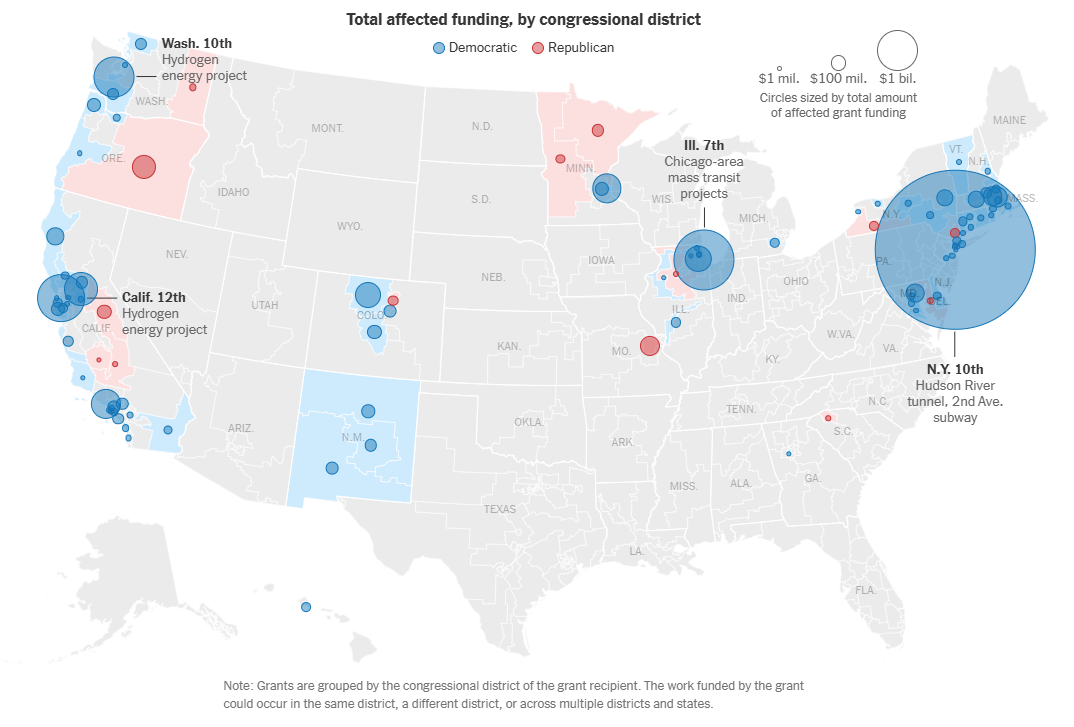Trump administration weaponizes federal funding to punish blue states

Emergency funds
Two weeks ago, a coalition of Democratic-led states filed a lawsuit against the Department of Homeland Security for illegally revoking millions of dollars in emergency preparedness funds to coerce compliance with Trump’s anti-immigration agenda. California, Connecticut, Delaware, D.C., Illinois, Massachusetts, Minnesota, New Jersey, New York, Vermont, and Washington allege in their complaint that the Trump administration is punishing political opponents by “taking money from its enemies” and “redistributing their funding to other states.”
The explanation for DHS and FEMA’s last-minute decision to reallocate $233 million in homeland security funds—the Reallocation Decision—is apparent. Although DHS has for decades administered federal grant programs in a fair and evenhanded manner, the current administration is taking money from its enemies. Or, as defendant Secretary Noem put it succinctly in a February 19 internal memorandum, States whose policies she dislikes “should not receive a single dollar of the Department’s money.” And, yet again, on September 24, 2025, a DHS spokesperson proclaimed that “Cities and states who break the law and prevent us from arresting criminal illegal aliens should not receive federal funding.” “No lawsuit, not this one or any other, is going to stop us from doing that.”
The funding cut came just days after District Judge William Smith, a George W. Bush appointee, issued a court order prohibiting DHS from conditioning emergency preparedness grants on unrelated immigration enforcement policies.
District Judge Mary McElroy, a Trump appointee, sided with the plaintiff states, issuing a temporary restraining order compelling DHS to release the full grant amounts. It’s “yet another case where the administration is saying … I’m going to do what I want to do and not what the law says and make the court make me,” McElroy said at the Sept. 30 hearing.
“This sort of last minute changing of the way the funding happens, and especially when it happens right in the wake of Judge Smith’s decision, is concerning,” McElroy added. Judge Smith agreed, issuing a second order on Monday reaffirming that the immigration conditions are unlawful and blasting DHS for what he called a “ham-handed attempt to bully the states”:
In effect, Defendants have done precisely what the Memorandum and Order forbids, which is requiring Plaintiff States to agree to assist in federal immigration enforcement or else forgo the award of DHS grants…Plaintiff States therefore have a right to accept the awards without regard to the contested conditions. Defendants’ new condition is not a good faith effort to comply with the order; it is a ham-handed attempt to bully the states into making promises they have no obligation to make at the risk of losing critical disaster and other funding already appropriated by Congress.
Counterterrorism funding
At the same time as the above lawsuit was filed, New York sued the Department of Homeland Security over the agency’s decision to cancel $33 million in counterterrorism funding for the Metropolitan Transit Authority (MTA). An internal FEMA powerpoint obtained by the New York Attorney General’s office revealed that the MTA was the only applicant that was denied. “Of the 21 agencies that applied,” the powerpoint reads, “one (1) was not selected because it is based in a Sanctuary Jurisdiction city” (page 25).
The Trump administration canceled the funds on the last day of the fiscal year, right before the appropriation of the money expired. As New York explained its lawsuit, FEMA did not notify the state of the funding change, hoping that it would go unnoticed and could be disbursed to other states.
New York learned about the Reallocation Decision not from the government but from an online news story, which reported earlier today that “[t]he federal government will deny the MTA tens of millions of dollars in requested security grant funding, withholding every dollar the agency asked for because New York City and New York state are ‘sanctuary jurisdictions.’” [...] In the unique posture of this case, where DHS appears to have chosen to obligate the balance of the TSGP funds at the very end of the fiscal year, there is a significant risk that, absent immediate relief freezing the status quo, the funds at issue will be irretrievably disbursed to other States after the original appropriation has expired.
District Judge Lewis Kaplan, a Clinton appointee, granted New York’s motion for a temporary restraining order preventing DHS from transferring the funds to other states, or using it for other purposes, while litigation proceeds.
- The $33 million in counterterrorism funding for the MTA is separate from the $187 million cut from counterterrorism funding for New York state as a whole. In the latter instance, Gov. Kathy Hochul personally appealed to President Trump who, reportedly unaware of the cuts, restored the money on Oct. 3.
Shutdown cancelations
Green energy
On the first day of the shutdown, OMB Director and Project 2025 architect Russell Vought announced the cancelation of $8 billion for clean energy projects across 16 states that voted for Kamala Harris in the 2024 election. The affected states include California, Colorado, Connecticut, Delaware, Hawaii, Illinois, Maryland, Massachusetts, Minnesota, New Hampshire, New Jersey, New Mexico, New York, Oregon, Vermont, and Washington, and span a wide variety of projects—from hydrogen hubs to methane reduction to grid reliability. A full list of the terminated projects can be found here.
Transportation aid
Also on the first day of the shutdown, Vought announced that the administration is withholding $18 billion in funding for New York’s Hudson River rail tunnel and subway extension, citing “unconstitutional DEI principles.” When pressed for more information, the Transportation Department said that it had been reviewing whether any "unconstitutional practices" were occurring in the two massive infrastructure projects but that the government shutdown had forced it to furlough the staffers conducting the review.
Then, on the third day of the shutdown, Vought posted on Twitter that the White House had frozen $2.1 billion for Chicago’s Red Line Extension and Red and Purple Modernization Project “to ensure funding is not flowing via race-based contracting.”
Targeted layoffs
Last week, Vought began laying off federal workers with reduction in force (RIF) notices. True to Trump’s promise that layoffs would be “Democrat-oriented,” the majority of the affected agencies include those seen as advancing liberal interests. From the latest numbers released Friday, we know that at least 1,400 people received RIF notices at the IRS, 1,200 people were laid off from the Dept. of Health and Human Services, over 400 people were fired from the Dept. of Housing and Urban Development (HUD), and nearly 500 people were RIF’d from the Dept. of Education.
Offices that were almost entirely eliminated without congressional authorization include:
- The Office of Population Affairs at HHS, which covers family planning services, teen pregnancy prevention, mental health and substance abuse services, LGBTQ+ health initiatives, and STD prevention and treatment.
- The Office of Special Education and Rehabilitative Services at the Dept. of Education, which provides funding for and protects the rights of students with disabilities.
- All of the staff at regional offices that enforce fair housing rules across Arizona, California, Colorado, Montana, Nevada, North Dakota, South Dakota, Utah, and Wyoming received RIF notices on Friday. The Office of Fair Housing and Equal Opportunity protects people from discrimination when they are renting or buying a home, getting a mortgage, seeking housing assistance, or applying for federally-assisted housing.
Late yesterday afternoon, District Judge Susan Illston, a Clinton appointee, issued a temporary restraining order pausing layoffs during the shutdown. It is “far from normal for an administration to fire line-level civilian employees during a government shutdown as a way to punish the opposing political party. But this is precisely what President Trump has announced he is doing,” Judge Illston wrote.
Federal funding as a weapon
As domestic agencies are shuttered and federal workers furloughed, the Trump administration is spending billions of dollars, not on Americans, but to rescue the Argentine economy. Treasury Secretary Scott Bessent announced last week that the U.S. had directly purchased Argentine pesos and finalized a $20 billion currency swap “framework” with Argentina’s central bank in an effort to save President Javier Milei’s election prospects. Bessent later revealed plans to raise an additional $20 billion from the private sector. “So that would be a total of $40 billion for Argentina,” he said.

- You may remember Milei as the man that brought a chainsaw to CPAC, which Elon Musk swung about wildly on stage. During his two years in office, Milei has enacted severe austerity measures across Argentina, taking a “chainsaw” to government programs and spending, while allegedly cashing in on cryptocurrency scams and embezzlement schemes.
The investment can be seen both as an attempt to keep Trump’s ally in power and as a giveaway to wealthy friends of the Trump administration. In addition to firms like BlackRock, Fidelity, and Pimco—which are heavily invested in Argentina—two billionaire former colleagues of Bessent stand to benefit financially from the arrangement. One of them, Discovery Capital Management’s Rob Citrone, reportedly encouraged Bessent to intervene on Milei’s behalf.
Bessent’s announcement had massive economic benefits for one American: billionaire hedge fund manager Rob Citrone, who has placed large bets on the future of the Argentine economy. Citrone, the co-founder of Discovery Capital Management, is also a friend and former colleague of Bessent…Citrone has bought Argentine debt and purchased equity in numerous Argentine companies that are closely tied to the performance of the overall economy…In early September, days before Bessent’s announcement, Citrone purchased more Argentine bonds.
Giving tens of billions of dollars to prop up a country run by a political ally of the president, with ties to friends of the administration, in the middle of a government shutdown, is the antithesis of “America First.” Especially considering that Milei is already benefiting massively off of Trump’s policies: Immediately after the bailout was announced, Argentina dropped their grain export taxes, spurring China to purchase at least 650,000 metric tons of soybeans from the nation’s farmers.
Meanwhile, American farmers are struggling to make ends meet after trade partners abandoned the U.S. market over Trump’s nonsensical tariffs. But Trump has a solution for that, as well: transferring $10 billion of tariff revenue, that we are all paying higher prices to support, to bailout farmers—some of Trump’s most dedicated supporters.
The bottom line

In the last 16 days, the White House has cut approximately $27.2 billion from Democratic districts compared to about $0.7 billion in GOP districts (all but two of which are located in blue states). To state the situation as clearly as possible: the president is unilaterally stripping funding from Democratic-voting areas and redirecting funding to Republican-voting areas. He views our federal tax dollars as his own money to use to reward his supporters and punish anyone who didn’t vote for him, as he said on Tuesday:
Bessent: “This aid [to Argentina] is predicated on robust policies and going back to the failed Peronist policies would cause a U.S. rethink.”
Trump: “It is a little like New York…I’m not gonna send a lot of money to New York. I don’t have to. You know, the money comes all through the White House.”
